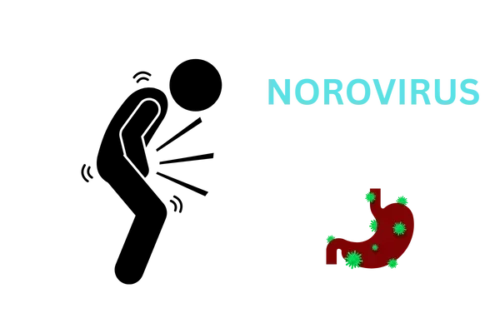Understanding Norovirus: A Comprehensive Guide to Managing Stomach Flu
Introduction: Norovirus, also known as stomach flu, is a highly contagious viral infection that affects the gastrointestinal tract. It is a leading cause of gastroenteritis, which is an inflammation of the stomach and intestines. In this article, we will discuss the causes, symptoms, and treatments for norovirus, as well as lifestyle changes and preventative measures to help you avoid infection.

What is Norovirus? Norovirus is a highly contagious virus that is spread through contaminated food, water, or surfaces. It causes inflammation of the stomach and intestines, leading to symptoms such as vomiting, diarrhea, and stomach cramps.
Causes of Norovirus:
- Contaminated food: Consuming food that has been contaminated with the norovirus is a common cause of infection. This can occur when food is handled or prepared by someone who is already infected with the virus.
- Contaminated water: Consuming water that has been contaminated with the norovirus is another common cause of infection. This can occur when water supplies are contaminated with fecal matter.
- Contaminated surfaces: Touching a surface that has been contaminated with the norovirus and then touching your mouth can also cause infection.
Symptoms of Norovirus:
- Nausea
- Vomiting
- Diarrhea
- Stomach cramps
- Headache
- Muscle aches
- Low-grade fever
Preventing Norovirus:
- Wash your hands frequently: This is the most effective way to prevent norovirus infection. Make sure to wash your hands with soap and water for at least 20 seconds after using the bathroom, before eating, and after handling contaminated objects.
- Avoid contaminated food and water: Be careful when consuming food and water, especially when traveling to areas with poor hygiene practices.
- Disinfect contaminated surfaces: If you suspect that a surface has been contaminated with norovirus, make sure to disinfect it thoroughly using a solution of bleach and water.
Treating Norovirus:
- Hydration: The most important aspect of treating norovirus is to stay hydrated. Make sure to drink plenty of fluids, such as water, sports drinks, and broths, to replace fluids lost during vomiting and diarrhea.
- Over-the-counter medications: Over-the-counter medications such as Imodium (loperamide) can help relieve diarrhea.
- Rest: Make sure to get plenty of rest while you are recovering from norovirus.
Lifestyle Changes:
- Maintain a healthy diet: Eating a healthy diet that is rich in fruits, vegetables, and whole grains can help boost your immune system and reduce the risk of norovirus infection.
- Exercise regularly: Regular physical activity can help boost your immune system and reduce the risk of norovirus infection.
- Avoid close contact with infected individuals: If you know someone who is infected with norovirus, avoid close contact with them until they have fully recovered.
Conclusion: Norovirus, also known as stomach flu, is a highly contagious viral infection that affects the gastrointestinal tract. By understanding the causes, symptoms, and treatments for norovirus, as well as making lifestyle changes and taking preventative measures, you can avoid infection and reduce your risk of complications.

